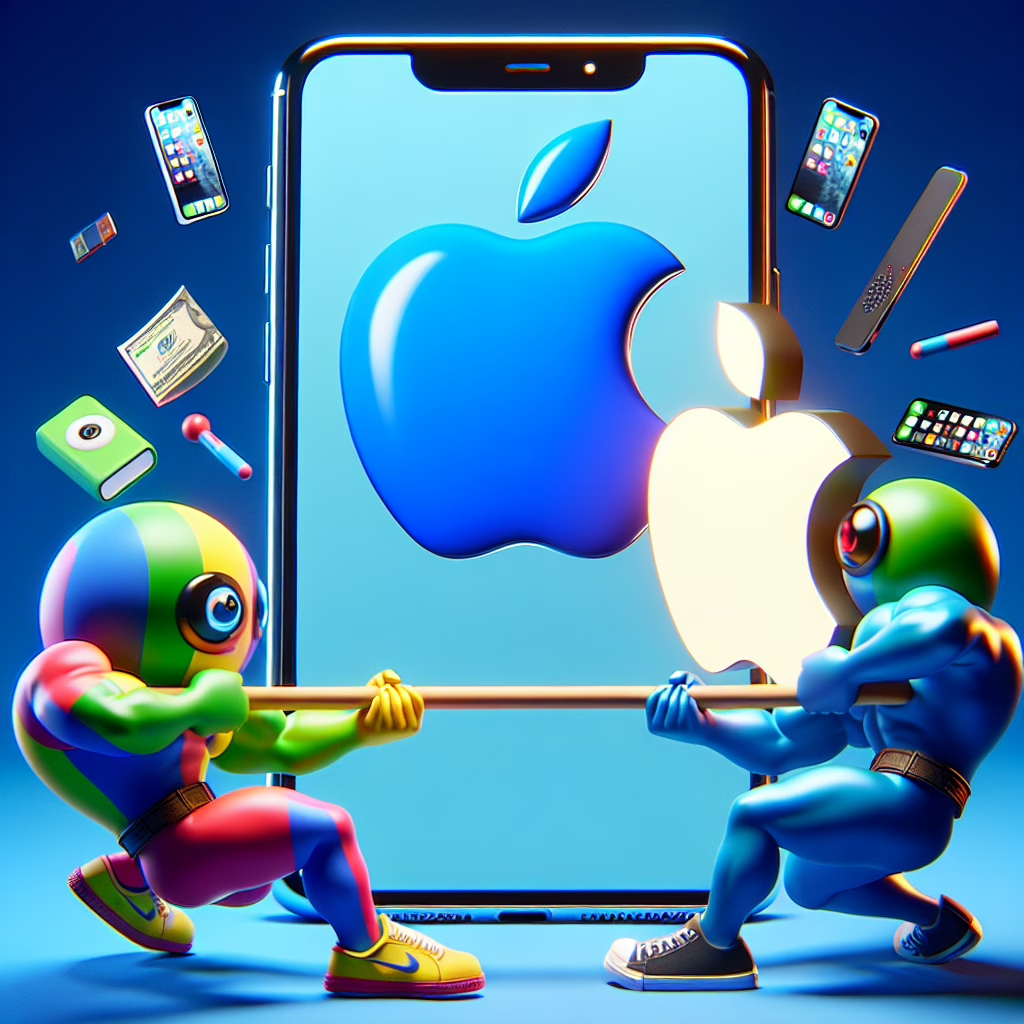Ah, the epic saga of Epic Games and Apple! It’s like watching two titans battle it out in a digital coliseum, with App Store policies serving as the gladiators’ rules of engagement. This ongoing antitrust drama brings us to the Ninth Circuit, where Epic Games challenges Apple’s tight grip on its App Store. Let’s dive into this amusing yet insightful tale of corporate maneuvering, legal wrangling, and a sprinkle of tech trivia.
The Antitrust Showdown: What’s at Stake?
In the left corner, we have Epic Games, the cheeky underdog known for its blockbuster game Fortnite. And in the right corner, it’s none other than Apple, sporting its iconic logo and a reputation for being a bit… shall we say, proprietary? The crux of their disagreement revolves around whether Apple’s control over the App Store stifles competition and innovation.
The Ninth Circuit Court is now tasked with deciding if Apple’s practices are indeed anti-competitive or just reflective of a savvy business strategy. After all, who doesn’t love a good game of Monopoly—especially when it comes to app distribution? This crucial decision could change how apps are monetized globally.
Epic’s Bold Moves and Apple’s Fortress
Epic Games decided to go for broke by implementing its own payment system within Fortnite, much to Apple’s chagrin. Imagine showing up to a fancy dinner party with your own snacks; that’s basically what Epic did! The result? A swift ban from the App Store and a long legal battle that has kept lawyers busy and coffee shops thriving.
But let’s not forget Apple’s side of the story. They argue that their stringent App Store guidelines ensure user security and provide developers with a consistent revenue model—something akin to setting up a lemonade stand but insisting on controlling how much sugar goes into each cup. Sounds fair, right? Apple claims this model allows a streamlined experience across its ecosystem.
The Legal Labyrinth: Navigating Antitrust Laws
The antitrust laws are like a complex maze filled with legal jargon and high-stakes drama. The heart of this case lies in whether Apple is abusing its market power or simply trying to maintain order in its digital kingdom.
For instance, if you walked into a bakery only to find that they refused to sell any other desserts because they were too busy perfecting their croissants, you might start questioning their practices. Similarly, Epic argues that Apple’s refusal to allow alternative payment methods limits competition and innovation within the app ecosystem, creating an unequal playing field.
Legal experts have weighed in, pointing out that this case could set a precedent for how app stores operate worldwide. If Epic wins, we could see a future where developers can choose how they want to monetize their apps without being at the mercy of Apple’s fees. Imagine that—a world where developers can breathe freely! Such a change could foster innovation and a surge in creativity across the digital landscape.
The Implications for Developers and Consumers
As we sip our lattes and watch this drama unfold from our comfortable couches, it’s worth pondering how this will impact both developers and consumers alike. If Epic prevails in court, smaller developers might find it easier to enter the market without having to pay hefty fees just to get their apps listed on platforms like Apple’s App Store.
- This could lead to a more diverse range of applications available to consumers.
- The potential for reduced costs for consumers as developers save on fees.
- New competitors entering the market could spur further innovation and creativity.
On the flip side, if Apple maintains its stronghold, they’ll likely continue raking in those sweet commissions—think of it as an exclusive club where everyone pays for entry but only a select few get VIP treatment. So while some may cheer for Epic’s cause, others might think twice before breaking down those digital doors.
A Lighthearted Look at Future Scenarios
Picture this: a future where app stores operate like bustling marketplaces. Developers could set up shop without fear of exorbitant fees while consumers browse freely among various apps—kind of like a farmer’s market but for apps! Imagine negotiating prices directly with your favorite developers over a cup of virtual coffee. This scenario hints at a more open market where community-focused development thrives.
However, we all know that ideal scenarios rarely happen overnight. For now, we continue to sit back and watch these giants duel it out while hoping for some semblance of fairness in the app ecosystem.
Your Thoughts?
This thrilling tale of Epic Games vs. Apple is far from over! As we await the Ninth Circuit’s ruling (and maybe some popcorn-worthy courtroom drama), we’d love to hear your thoughts on this unfolding saga. Do you root for Epic or do you believe Apple has every right to protect its castle? Share your thoughts below!
For more details on this fascinating legal battle, check out The Verge. A big thank you for their insightful coverage! Stay tuned for more updates on Epic Games and Apple!

